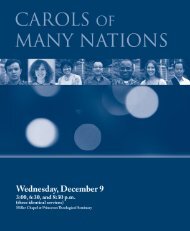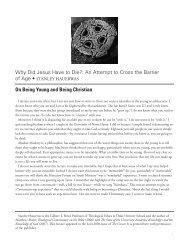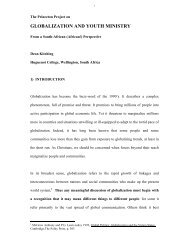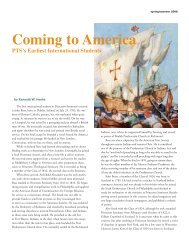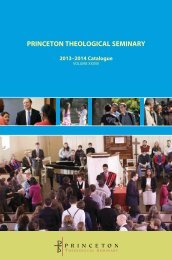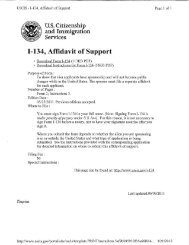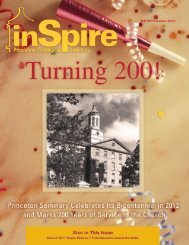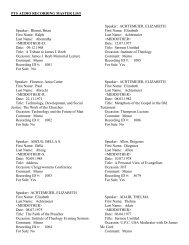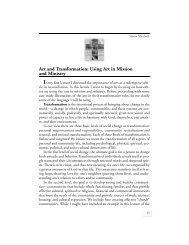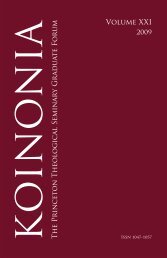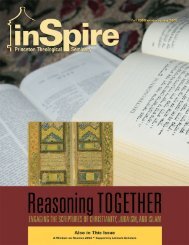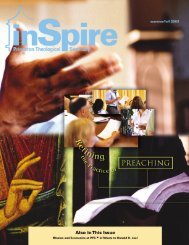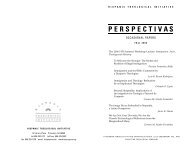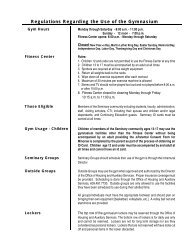Faculty - Princeton Theological Seminary
Faculty - Princeton Theological Seminary
Faculty - Princeton Theological Seminary
Create successful ePaper yourself
Turn your PDF publications into a flip-book with our unique Google optimized e-Paper software.
Curriculum<br />
The Master of Divinity program requires the successful completion of seventyeight<br />
credits drawn from the four academic departments of the <strong>Seminary</strong> and a<br />
listing of breadth and general requirements.<br />
The specific course/credit requirements are allocated as follows:<br />
Biblical Studies<br />
The student is required to take twelve credits, distributing the work as follows:<br />
1. Courses OT2101 Orientation to Old Testament Studies, and NT2101<br />
Introduction to the New Testament, which must be completed during the<br />
first year of work.<br />
2. One course (three credits) in New Testament and one course (three<br />
credits) in Old Testament, one of which must be designated as “close<br />
reading of the text.”<br />
Entering students who have studied Greek and/or Hebrew in a college or university<br />
setting and who wish to have an introductory language prerequisite waived<br />
must take the appropriate language placement examination(s). Students who have<br />
studied the equivalent of two full semesters or more of a biblical language at an<br />
ATS-accredited seminary or divinity school and have earned a grade of B or better<br />
need not take a placement examination.<br />
As a means of evaluating the student’s ability to carry on exegetical work in New<br />
Testament, the Greek placement examination will seek to determine:<br />
1. The candidate’s ability to decline nouns, adjectives, and participles and to<br />
conjugate and parse (analyze) verbs.<br />
2. Acquaintance with fundamental syntactical construction (such as those<br />
dealt with in J.W. Voelz’s Fundamental Greek Grammar, Concordia<br />
Publishing Company).<br />
3. Proficiency in translating moderately difficult passages from the Greek<br />
New Testament. An unmarked copy of the BDAG lexicon (Bauer, Danker,<br />
Arndt, Gingrich, A Greek-English Lexicon of the New Testament) may be<br />
used as a resource while taking this examination.<br />
As a means of evaluating the student’s ability to carry on exegetical work in Old<br />
Testament, the Hebrew placement examination will seek to determine the candidate’s<br />
ability to:<br />
1. Analyze Hebrew forms.<br />
2. Understand the fundamental syntactical construction.<br />
3. Translate prose passages from the Hebrew Bible.<br />
e 38 f<br />
cat0809



